|
|
|
Sort Order |
|
|
|
Items / Page
|
|
|
|
|
|
|
| Srl | Item |
| 1 |
ID:
093272
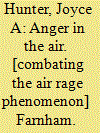

|
|
|
|
|
| Publication |
Farnham, Ashgate Publication, 2009.
|
| Description |
228 p.
|
| Standard Number |
9780754671930
|
|
|
|
|
|
|
|
|
|
|
|
Copies: C:1/I:0,R:0,Q:0
Circulation
| Accession# | Call# | Current Location | Status | Policy | Location |
| 054667 | 363.124/HUN 054667 | Main | On Shelf | General | |
|
|
|
|
| 2 |
ID:
104044
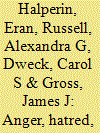

|
|
|
|
|
| Publication |
2011.
|
| Summary/Abstract |
Anger is often viewed as a destructive force in intergroup conflicts because of its links to aggressive behavior. The authors hypothesized, however, that anger should have constructive effects in those with low levels of hatred toward the out-group. Using experimental designs with subsamples of nationwide representative surveys, the authors conducted two studies within the context of the Israeli-Palestinian conflict. Study 1 showed that inducing anger toward Palestinians several weeks before the Annapolis summit increased support for making compromises in upcoming negotiations among those with low levels of hatred but decreased support for compromise among those with high levels of hatred. Study 2 showed that, even when a strong anger induction was used just days before the summit, the anger induction led to increased support for compromise among those low in hatred, but not among those high in hatred. The authors discuss the implications of these findings for informing a psychological understanding of conflicts.
|
|
|
|
|
|
|
|
|
|
|
|
|
|
|
|
| 3 |
ID:
184755
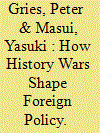

|
|
|
|
|
| Summary/Abstract |
Do history wars shape international affairs? If so, how and for whom? Taking the historical dispute between China and South Korea over the ancient Gaogouli/Goguryeo Kingdom as a case study, this article explores the individual-level psychological micro-foundations of history wars. A 2020 survey experiment in South Korea pit “ours” vs “theirs” Goguryeo imitation Wikipedia entries to explore their downstream consequences. It revealed direct, indirect, and conditional effects. Exposure to China's claim to the Kingdom undermined Korean pride, increasing dislike of China, and lessening desires to cooperate with it. Pre-existing levels of nationalism divided South Koreans in how angry they became after exposure the Wikipedia primes. That anger, however, only shaped the China policy preferences of those South Koreans who viewed the balance of military power with China favorably. Implications for ownership disputes over kimchi and other national possessions are also discussed, as are the implications of history wars for war and peace in twenty-first-century East Asia.
|
|
|
|
|
|
|
|
|
|
|
|
|
|
|
|
| 4 |
ID:
084202
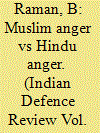

|
|
|
| 5 |
ID:
166147
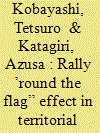

|
|
|
|
|
| Summary/Abstract |
This study examines the impact of China's growing territorial ambitions on Japanese public opinion. By experimentally manipulating perceived territorial threats from China, we tested two potential mechanisms of increased support for a conservative incumbent leader in Japan. The first is the “rally ’round the flag” model, in which threats universally boost support for the leader through emotion. The second is the “reactive liberal” model, in which support from conservatives remains constant, but threatened liberals move toward supporting the conservative leader. Two survey experiments provided no support for the emotion-based “rally ’round the flag” model, but they lent support for the reactive liberal model in explaining the impact on Japanese public opinion. However, the second experiment indicated that priming with an image of the prime minister that highlights his role as the supreme commander of the national defense forces completely eliminated the gain in approval rates among liberals.
|
|
|
|
|
|
|
|
|
|
|
|
|
|
|
|
| 6 |
ID:
164805
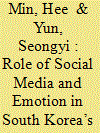

|
|
|
|
|
| Summary/Abstract |
Previous studies have shown that social media is effective in large-scale mobilization, facilitating leaderless and more flexible forms of resistance. However, some scholars argue that this type of mobilization suffers from a lack of organizational form and collective identity. This paper shows that social media-centered networks can in fact promote collective actions powerful enough to challenge a corrupt president. We also prove the role of emotions in collective actions. Using an empirical analysis of the 2016 Presidential Impeachment Protests surrounding “Choi Soon-sil Gate,” we first demonstrate the effects of social media activities on participation in collective actions. Next, we explore the effects of anger on social media activities and participation. In short, this study reveals a new angle on social media’s influence in mobilizing collective actions by analyzing the effect of emotions on participation. In this process, social media activities are escalated by emotional outbreaks, and participation then increases throughout a given collective action.
|
|
|
|
|
|
|
|
|
|
|
|
|
|
|
|
| 7 |
ID:
190780
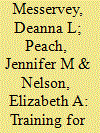

|
|
|
|
|
| Summary/Abstract |
Military ethics training has tended to focus on imparting ethical attitudes and on improving deliberative moral decision-making through classroom instruction. However, military personnel can be exposed to extreme conditions on operations, which can lead to heat-of-the-moment thinking. Under stress, individuals are more likely to engage in automatic processing than deliberative processing, and visceral states such as anger and disgust can increase a person’s risk of behaving unethically. We propose that military ethics training could be improved by reinforcing classroom ethics training with interventions to counteract these risk factors. As training interventions, we recommend incorporating affect-labeling, goal-setting, and perspective-taking into realistic, pre-deployment training to make moral decision-making more robust against stress and other emotional experiences typical in combat. We outline steps researchers and trainers can take to test whether these interventions have the desired impact on ethical behavior.
|
|
|
|
|
|
|
|
|
|
|
|
|
|
|
|
|
|
|
|
|